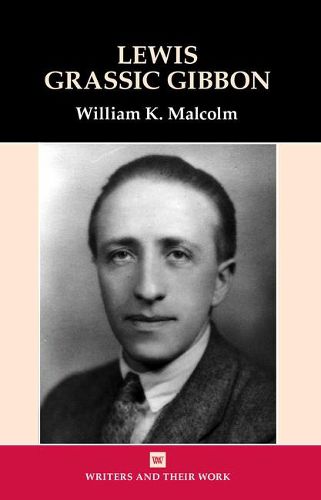Readings Newsletter
Become a Readings Member to make your shopping experience even easier.
Sign in or sign up for free!
You’re not far away from qualifying for FREE standard shipping within Australia
You’ve qualified for FREE standard shipping within Australia
The cart is loading…






Lewis Grassic Gibbon galvanized the Scottish literary scene in 1932 with Sunset Song, a novel that drew vividly upon his upbringing in a croft in rural Aberdeenshire to capture the zeitgeist of the early twentieth century and provide a compelling moral mandate for social and political change in the inter-war period. Gibbon’s compassionate and lyrical study of the pains and pleasures of his heroine Chris Guthrie growing up around the First World War regularly earns him the accolade of his country’s favourite author. However, his literary legacy stretches far beyond the first Gibbon novel; the succeeding volumes of the epic trilogy A Scots Quair chronicle his heroine’s experiences in the modern mill town in Cloud Howe and in the grim industrial city in Grey Granite and explore a wealth of ideological responses - social, cultural, political and philosophical - that are bracingly topical today. In a life cruelly cut short, Gibbon produced an astonishing total of seventeen full-length works, under his own name of James Leslie Mitchell as well as his Scots pseudonym, demonstrating his versatility as essayist, historian, biographer and fiction writer, all illuminated by his profound humanitarianism. The time is ripe for this fresh reappraisal of the full canon of an author whose fame in recent years has carried well beyond his native Scotland, and whose modernist experimentation with language and narrative earns him a place among the foremost writers of fiction of the twentieth century.
$9.00 standard shipping within Australia
FREE standard shipping within Australia for orders over $100.00
Express & International shipping calculated at checkout
Lewis Grassic Gibbon galvanized the Scottish literary scene in 1932 with Sunset Song, a novel that drew vividly upon his upbringing in a croft in rural Aberdeenshire to capture the zeitgeist of the early twentieth century and provide a compelling moral mandate for social and political change in the inter-war period. Gibbon’s compassionate and lyrical study of the pains and pleasures of his heroine Chris Guthrie growing up around the First World War regularly earns him the accolade of his country’s favourite author. However, his literary legacy stretches far beyond the first Gibbon novel; the succeeding volumes of the epic trilogy A Scots Quair chronicle his heroine’s experiences in the modern mill town in Cloud Howe and in the grim industrial city in Grey Granite and explore a wealth of ideological responses - social, cultural, political and philosophical - that are bracingly topical today. In a life cruelly cut short, Gibbon produced an astonishing total of seventeen full-length works, under his own name of James Leslie Mitchell as well as his Scots pseudonym, demonstrating his versatility as essayist, historian, biographer and fiction writer, all illuminated by his profound humanitarianism. The time is ripe for this fresh reappraisal of the full canon of an author whose fame in recent years has carried well beyond his native Scotland, and whose modernist experimentation with language and narrative earns him a place among the foremost writers of fiction of the twentieth century.